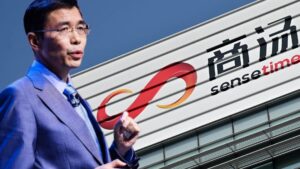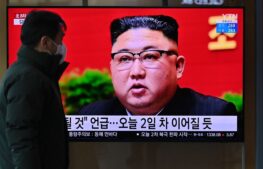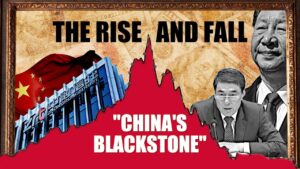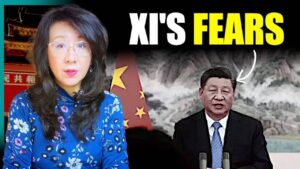In just three years, the Chinese Communist Party has fallen from its arrogant position of “the East rising and the West declining” to a state of economic and diplomatic helplessness. To rescue the economy, Xi Jinping prescribed “common prosperity” as the antidote. However, his remedy is akin to a war curse, putting the CCP on a collision course with the free world. Today’s China and the world are in the shadow of war.
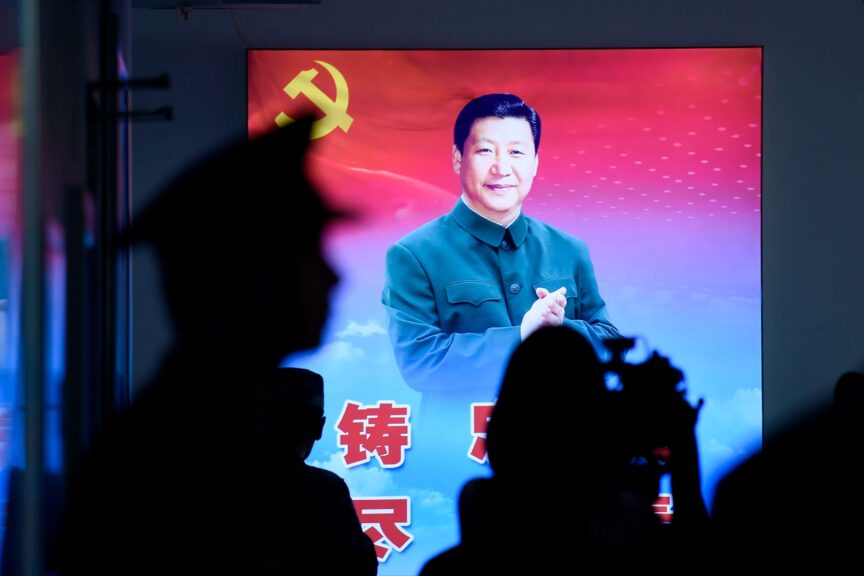
CCP System vs. Private Wealth
Karl Marx said (in “Das Kapital,”) “Capital comes dripping from head to foot, from every pore, with blood and dirt.” As a Marxist-Leninist ruling party, the CCP’s governance system is incompatible with private capital. Mao Zedong, like Vladimir Lenin, sought to eliminate private capital, so within their proletarian dictatorship, private wealth was virtually nonexistent.
Deng’s economic reforms have given private wealth an important role in Chinese society. When this wealth grew to a certain extent, it inevitably began to clash with the CCP’s governance apparatus. Wealth represents a form of power, and private capital is the financial power held by the masses. It is largely beyond the CCP’s control and fundamentally challenges the leaders’ power.
By Hu Jintao’s time, the threat of private wealth to the CCP placed the party at a crossroads between progressing with reforms or regressing to a planned economy. Hu’s “Scientific Development Concept” put off this debate by seeking a balance amid the tug of war between private wealth and the CCP’s control. Then came Xi Jinping.
By Xi’s time, private wealth and capital had begun to flourish in China. During his second term, the private economy contributed over 50% of tax revenue, 60% of GDP, 70% of technological innovation, 80% of urban employment, and over 90% of the number of enterprises.
However, Xi and the CCP faced an issue previously brought up by Lenin, who believed that communism could succeed in weak capitalist societies in which fewer capitalists would allow fewer people to taste the sweetness of capitalism. In today’s China, the masses have all tasted the sweetness brought by capital. And this threatens the CCP’s rule.
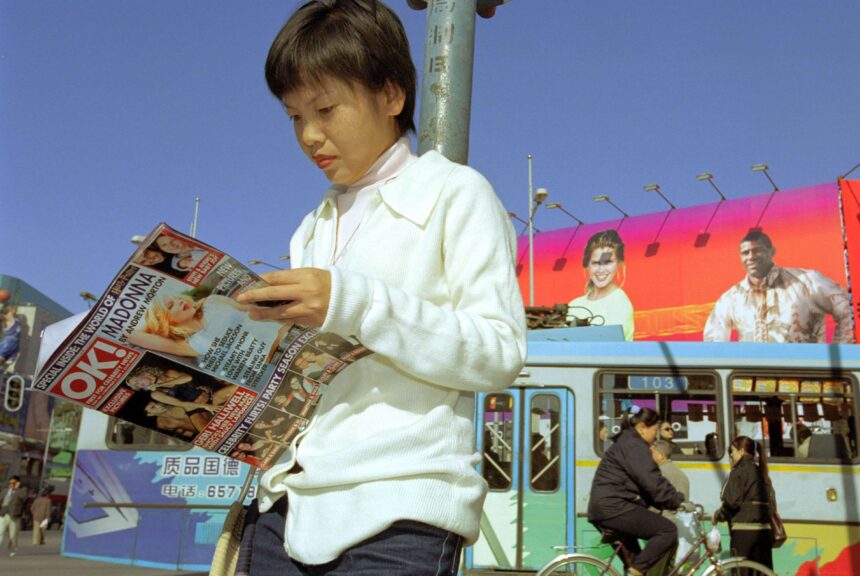
As a Red Guard growing up during the Cultural Revolution, Xi believes since becoming the CCP leader, that the immense financial power brought by private capital is dragging the CCP’s rule toward its demise.
After China joined the WTO, its vast consumer market was coveted by Western capitalists. Orders and investments from the West floated to China like snowflakes. By the time of Xi’s second term, the influence of private capital, both Chinese and foreign, had become so pervasive in Chinese society that not even the balancing act previously played by Hu Jintao was viable for Xi.
When Mao Zedong wanted to launch a political movement, he only needed to send a decree to a local factory or some grassroots organization. People would be overwhelmed by the privilege of receiving Chairman Mao’s order and the masses would be mobilized. If Xi Jinping sends a policy to a grassroots organization today, people will question and ignore it. The Chinese public has been empowered by wealth.
Xi Jinping’s Choices
During China’s 30 years of economic reforms, the private capital behind foreign and private enterprises, the CCP’s insatiable appetite for GDP growth, and the ultra-materialistic mentality promoted in society have driven China’s economy forward, like an out-of-control, mad cow.
To stop this mad cow from dashing to destruction, Xi faces two choices: continuing market liberalization, which would grant more freedom to the people at the risk of increasing challenges to the leadership, or retracting China’s highly marketized economy toward a Maoist era. Confident in his communist path, Xi has chosen to forcefully turn this mad cow around, onto a Maoist path. And this has proven to be destructive.
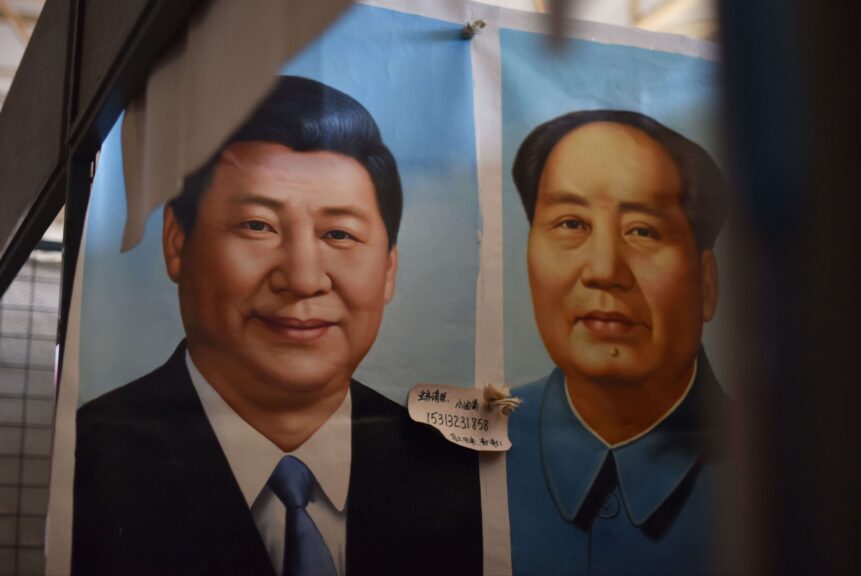
Domestically, the Chinese people have been exposed to prosperity and aren’t willing to return to the Maoist era. If China’s real estate and stock markets crash and banking crises occur, the Chinese wouldn’t just watch their private wealth evaporate without doing something.
If it faces a significant governance crisis, Beijing might have to eventually resort to martial law and military control. However, Xi cannot send the military to factories and schools as Mao did during the Cultural Revolution. So the initiation of military rule can only be war. In a seemingly desperate situation, Xi and the CCP will move toward the last resort: war.
China’s economy is declining, and its population is aging. Foreign investments are withdrawing, while restrictions on high-tech exports to China are expanding. If the West continues its current de-risking policy, in 5 to 10 years, the CCP will no longer pose a substantial threat to the free world. And its ability to finance a war will diminish as time goes on. Therefore, the likelihood of war in the near future is much greater than we have realized.
Are we at the beginning of the US-China war?
People in the free world have lived in peace for so long that they may have forgotten how close war can be. Xi grew up during the Cultural Revolution and was deeply indoctrinated with the communist ideal of liberating all of humanity through a revolution. He thrives in a combative, chaotic environment and has repackaged the communist revolution, changing it into what he calls a “community of common destiny,” which implies war with the United States.
To meet this challenge, Xi has formed a new anti-American alliance with Russia, Iran, North Korea, Belarus, and Afghanistan, extending its reach toward Saudi Arabia, Pakistan, and the five Central Asian countries. With the war in Ukraine at a standoff and an ongoing crisis in the Middle East, and also with the situation in the Red Sea and Northeast Asia getting tense, the current geopolitical landscape is favorable for the CCP’s war as the United States is tied up more and more in multiple conflicts.
So, one should not underestimate the potential risk of war posed by the CCP in its desperate state. The regular joint military exercises and missile tests by the CCP, North Korea, and Russia in the East China Sea, South China Sea, and Sea of Japan suggest that war may not be far off.
One prominent manifestation of the conflict that the CCP has with private capital is the deep-rooted corruption among CCP officials, which has corroded the regime from within. It proves that capital, seen by Marx as a great danger, is actually the natural enemy of the CCP.
On December 26, 2023, Xi led a commemoration event at Mao Zedong’s memorial hall, underscoring Marxism as the foundational guiding ideology for the CCP. Xi’s New Year’s speech emphasized the inevitability of Taiwan’s unification, suggesting indeed that war isn’t far off. And we may soon hear its approaching steps.

